Poll: Independents are not buying the Walz agenda
When entertainers, advertisers or politicians want to know if an idea will be well-received by mainstream America, they ask the question, “Will it play in Peoria?” Our latest Thinking Minnesota Poll tests whether the aggressive, far-left agenda being proposed and passed by Gov. Tim Walz and his Democratic allies is playing well in Minnesota’s version of Peoria — Independents. The answer? Not so much.
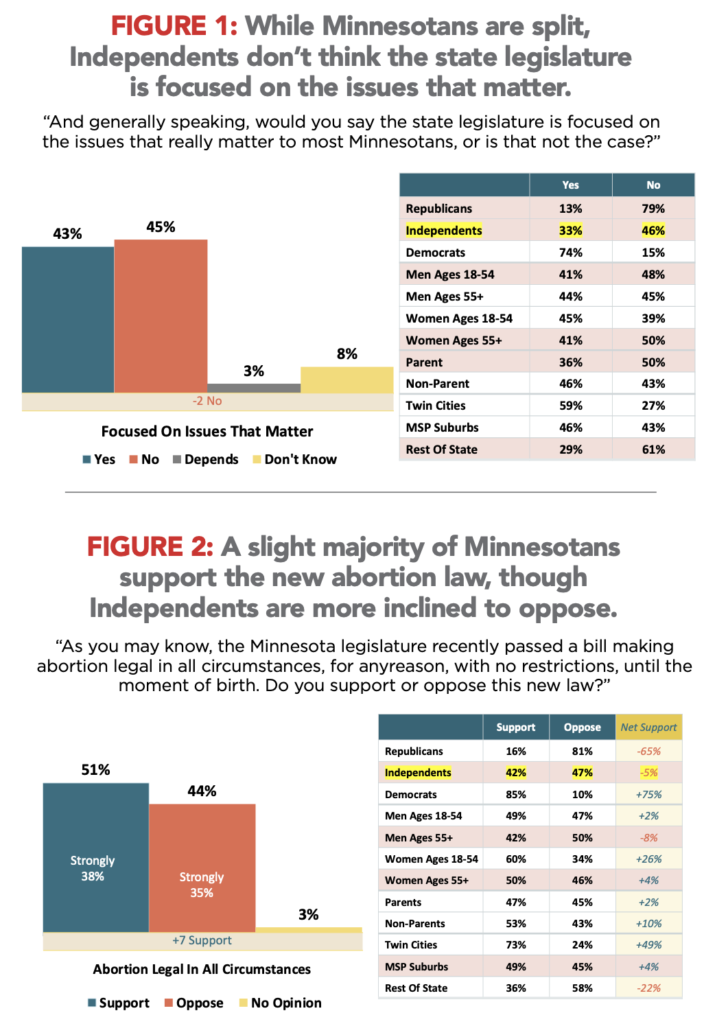
While the chosen priorities may play well with their liberal Democratic base, on every major issue proposed or passed so far in 2023, Walz and the Democrats are losing Independents in Minnesota. The exception is legalization of recreational marijuana, which has the support of 59 percent of Minnesotans and 70 percent of Independents.
The Thinking Minnesota Poll was conducted by Meeting Street Insights, a nationally recognized polling operation based in Charleston, South Carolina. Using a mix of cell phones and landline phones, the company interviewed 500 registered voters across Minnesota from February 26-28, 2023. The margin of error is +-4.38 percent.
First, respondents were asked the broader question of whether the state legislature is focused on the issues that really matter to most Minnesotans. This gave us the first hint that Independent voters (our version of Peoria) were not on board with the Walz/ DFL agenda, as 45 percent answered “no” and only 33 percent answered “yes.”
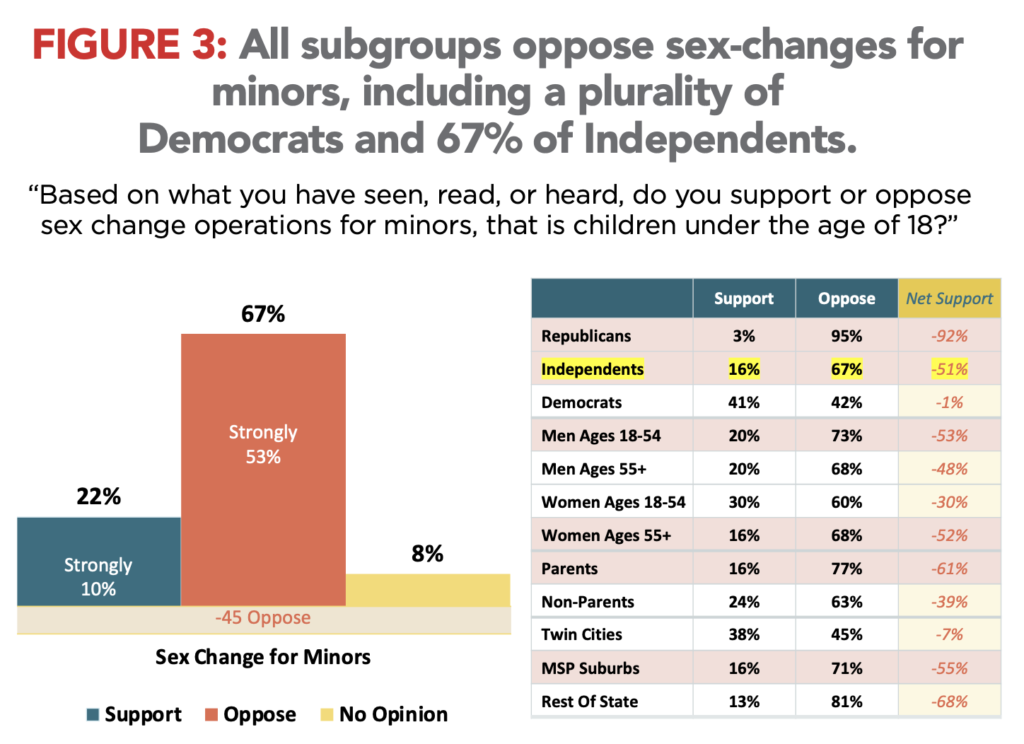
The first specific issue we tested was something voters arguably gave Democrats a mandate to address: abortion. But the bill they passed went well beyond last year’s campaign slogan of codifying Roe vs. Wade. Democrats in the legislature eliminated every restriction on abortion and left the state with a regulatory structure on par with North Korea. While a surprising majority of Minnesotans voiced support for this extreme position, Independents opposed the measure by five points (42 to 47 percent). It was surprising because when asked a question on their general feeling of abortion, only 28 percent said abortion should always be legal in any circumstance, which reflects the actual parameters and language 2% of the new law.
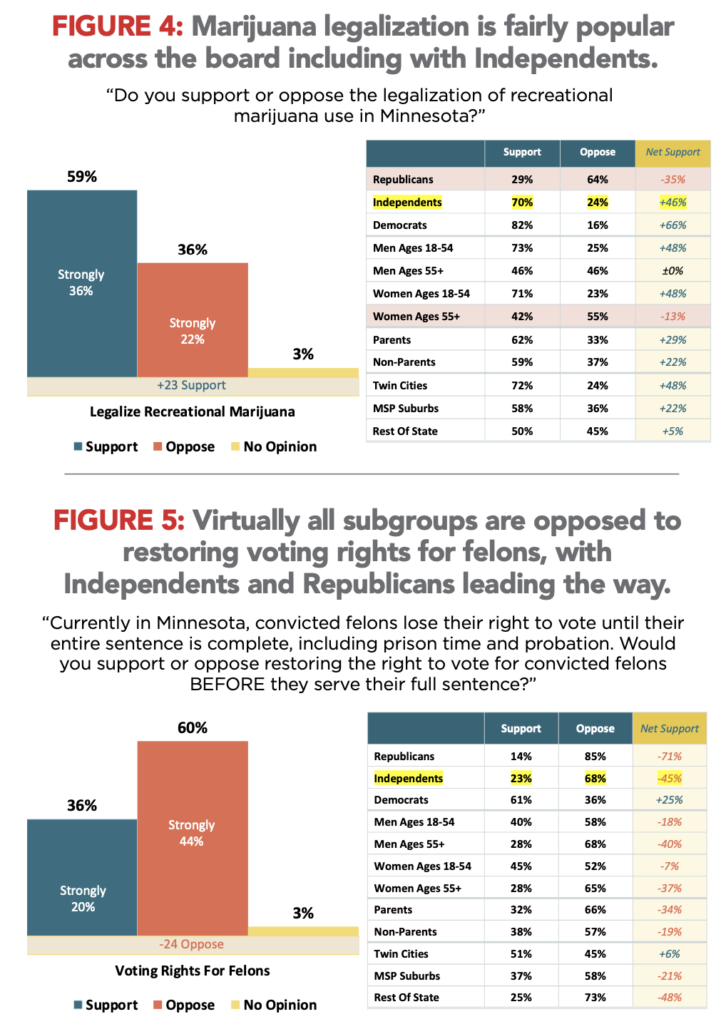
On March 3, 2023, Walz signed a bill giving felons the right 5% to vote after being released from prison but before completing their sentence. A majority (60 percent) of Minnesotans oppose felon voting with only 36 percent in support, mostly Democrats and residents of Minneapolis and St. Paul. How does it play in our Peoria? The measure is opposed by 67 percent of Independents, creating a political liability for Walz and the Democrats.
With Walz signing an executive order in March making Minnesota a refuge for families who want to receive so-called “gender affirming care,” we decided to test the issue at the heart of this debate: whether Minnesotans support sex-change operations for minors. An overwhelming majority (67 percent) of Minnesotans oppose sex change operations for minors with all political subgroups in the poll opposed, including Democrats. The 51-point gap in opposition among Minnesota Independents (16 to 67 percent) is another sign that Walz and the Democrats are taking a political risk by pushing this extreme measure.
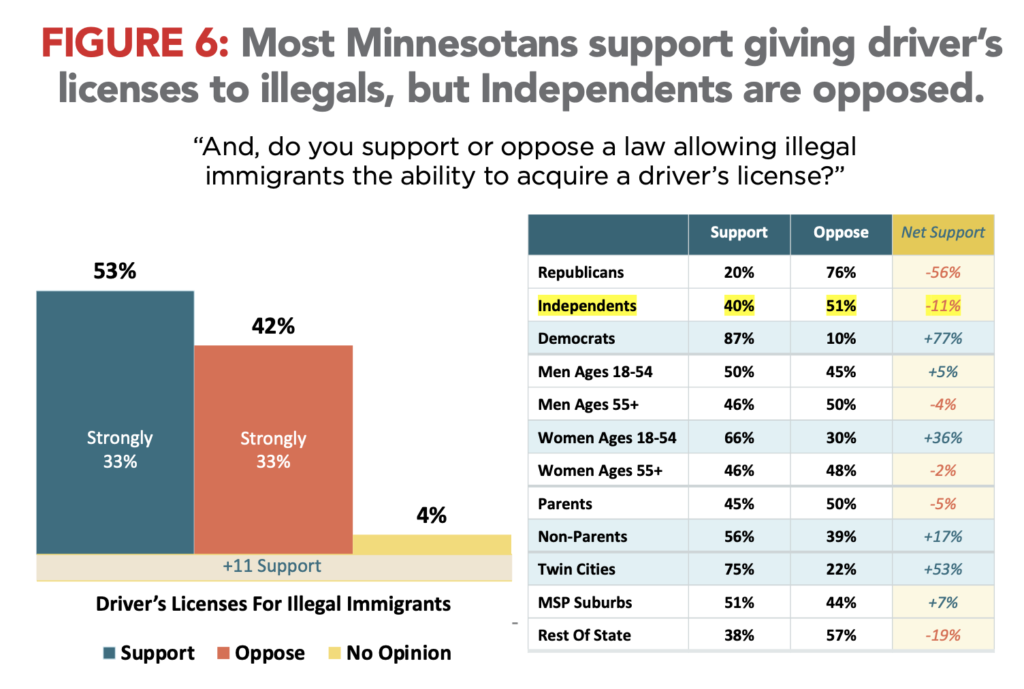
An issue already checked off the 2023 agenda is allowing illegal immigrants the ability to secure a driver’s license. While this issue is supported by a slim majority of Minnesotans (53 percent), Independents oppose it by eleven points: 40 to 51 percent. Democrats in our poll drove this issue with 87 percent of them supporting driver’s licenses for illegals, another sign that the Walz/DFL agenda is catering to its core constituency.
Bills to dramatically change the way Minnesota conducts statewide elections are moving through legislative committees, namely ranked choice voting (RCV). However, our poll finds very tepid support for it. Less than half of Minnesotans (49 percent) are familiar with RCV, and only 34 percent said they support the practice. Independent voters are less familiar with RCV (36 percent) than Republicans and Democrats and less % likely to support it (23 percent) than their more politically active peers.
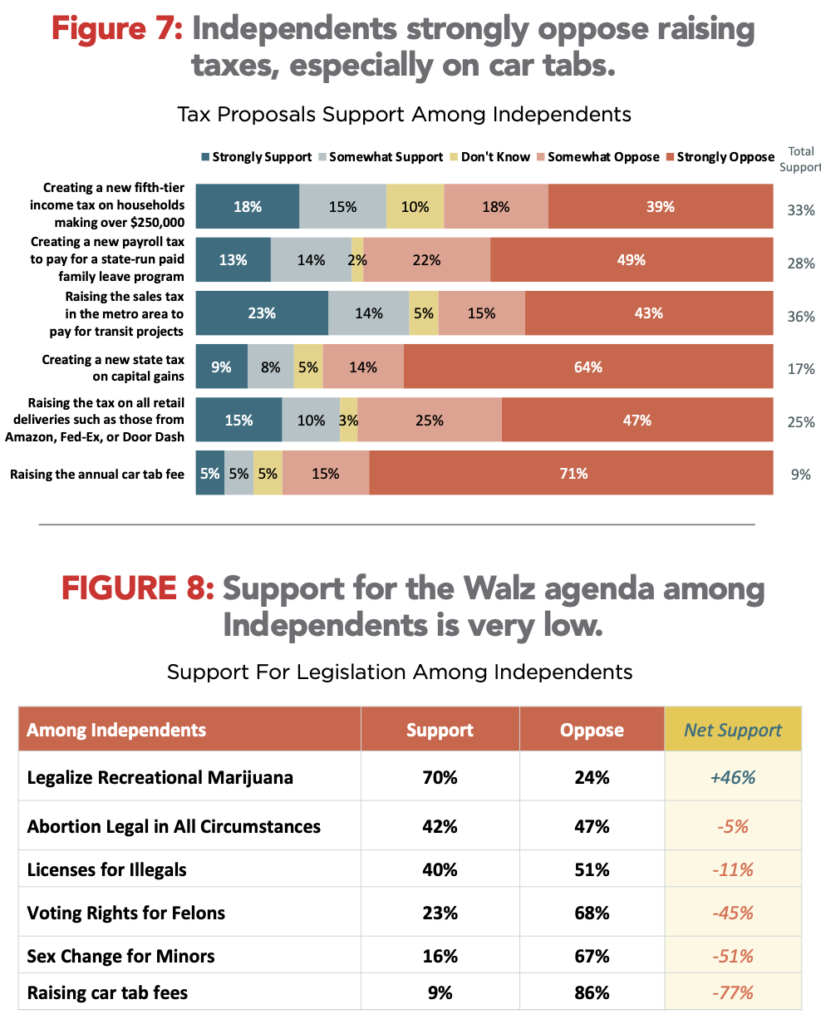
Tax increases that affect average Minnesotans doing everyday things, like renewing car tabs or ordering from Amazon are not playing well in “Peoria,” or anywhere else in Minnesota. That’s not surprising given the state’s $20 billion surplus. Walz’s proposal to raise car tab fees is opposed by 81 percent of Minnesotans, including 86 percent of Independents. His proposal to create a new tax on delivery services is opposed by 72 percent of Minnesotans and 72 percent of Independents.
Other tax increase proposals didn’t fare much better with Minnesotans or Independents.
- Raising the sales tax in the metro area to pay for transit projects is opposed by 58 percent of Minnesotans and 58 percent of Independents.
- Creating a new state tax on capital gains is opposed by 61 percent of Minnesotans and 78 percent of Independents.
- Creating a new payroll tax to pay for a state-run paid family leave program is opposed by 50 percent of Minnesotans and 71 percent of Independents.
- Creating a new fifth-tier income tax on households making over $250,000 is supported by 53 percent of Minnesotans but opposed by 57 percent of Independents.
Independents are strongly against the Walz tax increase agenda, and in all cases, they match or exceed opposition from their fellow Minnesotans.
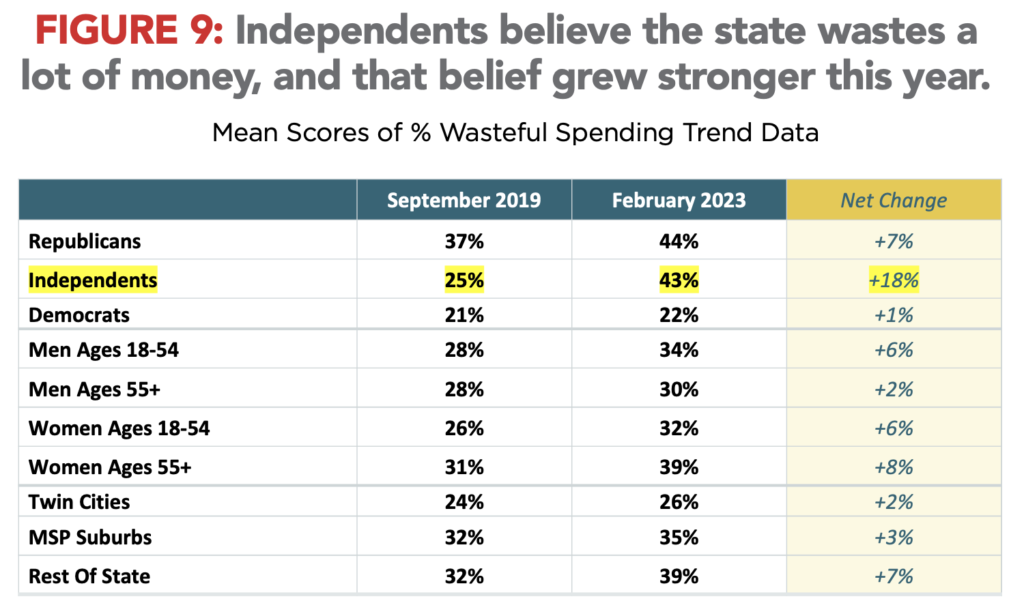
On the spending side, the Thinking Minnesota Poll has occasionally asked Minnesotans to tell us how much waste they believe occurs in state government. Historically, this number has averaged around 27 percent but this year it spiked to 34 percent, meaning respondents believe 34 percent of state government spending is wasted. The disastrous Feeding Our Future scandal that wasted $500 million (and counting) likely influenced this spike in perceived waste. Independents once again answered at higher numbers than their peers and registered the largest jump in perceived wasteful spending from 25 to 43 percent.
Ever since Walz and his allies in the Minnesota legislature gained complete control of state government, they have been on a mission. In the first three months of the legislative session, Democrats have already passed an aggressive agenda of far-left legislation that has Republicans reeling, legislative staff exhausted and the public trying to keep up. As our poll shows, that agenda is better suited for a narrow audience of liberal voters and not the average Minnesotans that live in our version of Peoria.